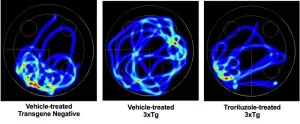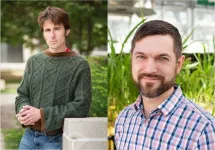(Press-News.org) Combine cyberbullying, smartphone use, lack of sleep and poor mental health, and you have the perfect storm for a teenage meltdown.
Australian researchers have polled more than 50,000 primary and secondary school students aged 7-19 years about the link between their sleep and nighttime phone habits, experience of cyberbullying and stress levels.
Researchers from the Behaviour-Brain-Body Research Centre at the University of South Australia found that across all genders and age groups, phone use overnight not only robbed children of sleep, but it also had a negative impact on their mental health, especially among those who had been cyberbullied.
Whether one habit causes or stems from another is not crystal clear, but the study findings should send a clear signal to parents about the need to manage digital device use at home.
Approximately 66% of teenage girls and 58% of teenage boys (aged 12-19 years) reported being cyberbullied at least once in the preceding school term. Among the girls, 17% said they slept less than eight hours a night and the corresponding figure for the teenage boys was 13%.
Stress levels in the moderate-to-severe range were reported by 38% of teenage girls and 23% of teenage boys.
While cyberbullying and lack of sleep were not as common in primary aged children (7-11 years), one in five reported moderate-to-severe stress.
For the purposes of the study, “nighttime” refers to phone use when children are supposed to be sleeping, not prior to bed.
UniSA researcher and co-author Dr Stephanie Centofanti says that girls are particularly vulnerable because their smartphone use at night is higher than other age groups and they start using social media at a younger age.
“We found that frequency of nighttime phone use and getting less than eight hours sleep a night not only peaked in early adolescence but was also more evident in young girls,” Dr Centofanti says.
“Pre-teens are at higher risk for socio-emotional disorders because they are at a developmental stage where they are less prepared cognitively, behaviourally and neurobiologically.”
The researchers say that outside of the digital environment, boys are more likely to be physically bullied, while girls normally resort to psychological or relational bullying, which is more easily enabled online.
Approximately 15% of children in the study reported being cyberbullied, with a higher frequency of boys in primary school and girls in secondary school.
More than one third of primary school children and over 60% of teenagers in the study reported using their phone at night when they were supposed to be sleeping.
Of the children who experienced cyberbullying, almost 75% admitted they checked their phone throughout the night, compared to less than half for those who had never been cyberbullied.
“It is clear that parents need to pay closer attention to managing smartphone use at night, particularly if their children are more vulnerable to cyberbullying, and to ensure their children get enough sleep,” Dr Centofanti says.
The findings are published in the journal Adolescents.
Notes for editors
“Nighttime phone use and past exposure to cyberbullying and their impact on sleep and psychological wellbeing in Australian children aged 7-19 years” is co-authored by researchers from the University of South Australia and Resilient Youth Australia. DOI: 10.3390/adolescents4030025
END
Sleep-deprived, cyberbullied teenagers addicted to smartphones now a common phenomenon
Survey sends a clear signal to parents to manage digital device use at home
2024-09-04
ELSE PRESS RELEASES FROM THIS DATE:
Auburn researchers show novel drug rescues memory loss in Alzheimer’s mouse model
2024-09-04
AUBURN, AL — In a recent development in Alzheimer's disease research, Auburn University scientists have studied a new drug, troriluzole, that can prevent brain changes leading to memory loss and cognitive decline in a mouse model of the disease. This study, recently published in the Journal of Neurochemistry, is the first to show how troriluzole can target early-stage alterations associated with Alzheimer’s, providing new hope for potential treatments.
Dr. Miranda Reed, a Professor in the department ...
Study at Pennington Biomedical Research Center to evaluate THC, CBD benefits for dementia-related agitation
2024-09-04
Pennington Biomedical Research Center’s Dr. Jeff Keller is evaluating the potential for delta-9-tetrahydrocannabinol, or THC, and cannabidiol, or CBD, to reduce the behaviors indicating agitation, distress or anxiety in patients with Alzheimer’s disease or other forms of dementia. The study is designed for hospice-eligible patients who are either receiving hospice care or who are eligible for hospice, and who are exhibiting agitation concurrently with a diagnosis of dementia. There are currently no FDA-approved medications to treat agitation at the end-of-life stages in dementia patients.
The “Life’s End Benefits of Cannabidiol and ...
Illinois scientists to test modernized genetic model for optimized crop breeding
2024-09-04
URBANA, Ill. — The National Science Foundation (NSF) has funded University of Illinois Urbana-Champaign research that aims to connect the dots between quantitative and molecular genetics and improve crop breeding.
The four-year, $795,000 grant investigates new theories on how genetics influence complex crop traits, such as yield or grain quality. These traits are controlled by lots of different genes — sometimes hundreds or thousands — which makes untangling their contributions difficult. Crop breeders use a host of advanced genetic tools to predict and ...
Adolescent glioma subtype responds to CDK4/6 inhibitor
2024-09-04
Boston – CDK4/6 inhibitors, which are already FDA approved for the treatment of other forms of cancer, show early signs of promise in the treatment of a subtype of pediatric high-grade glioma, according to new research from Dana-Farber Cancer Institute and the Institute of Cancer Research in London. Treatment of a patient with a second relapse of this glioma subtype and no other treatment options resulted in 18 months of progression-free survival.
“We are finally starting to see more targeted therapies come out for different forms of brain cancer,” says senior author Mariella Filbin, MD, PhD, co-director ...
Study highlights importance of social media influencers in information dissemination during mpox outbreak
2024-09-04
A recent study shows social media influencers are more important than previously thought when it comes to getting out vital information in a crisis.
The study suggested partnerships that could improve public communication between governments, non-profits and social media influencers during crises. The study, conducted by UF/IFAS assistant professor Kimberly Kay Wiley, a researcher in the family, youth and community sciences department, and Bridgewater State University associate professor Seth Meyer, shows how these groups can collaborate to effectively disseminate information and manage public health emergencies on social media.
“In ...
Ability to cope well with adversity in older age linked to lower death risk
2024-09-04
The ability to cope well with, and adapt to, challenging life circumstances and events in older age is linked to a lower risk of death, suggests a large nationally representative study, published in the open access journal BMJ Mental Health.
The findings underscore the importance of efforts to bolster mental resilience, conclude the researchers.
The available evidence suggests that mental resilience is a dynamic and active process influenced by various factors, including sex, hormones, and the genes regulating ...
Number of general practices shrinking but patient lists ballooning in England
2024-09-04
Over the past decade the number of NHS general practices in England has shrunk by 20%, but patient list sizes have expanded by 40% to just under 10,000, on average, finds an analysis of three national primary care datasets, published in the open access journal BMJ Open.
And while the total NHS general practice workforce grew 20% between 2015 and 2022, as a result of increases in admin staff and other practitioners, the number of GPs per 1000 patients fell by 15% over the same period, when accounting for working hours, the analysis shows.
Major structural and organisational changes have taken place in general practice in England over the past decade,but it’s difficult ...
Women, Black people, and disadvantaged less likely to get heart surgery in England
2024-09-04
Women, people of Black ethnicity, and those from low income households in England are less likely to be offered heart surgery than men, White people, and those who are affluent, finds research published online in the journal Heart.
And when they do have these procedures, they are more likely to die within a year, prompting the researchers to call for prompt action to tackle these health inequalities.
Cardiac surgery is one of the costliest ways of treating cardiovascular disease, with around 28,000 adults a year in the UK undergoing the procedure, note the researchers. While previously published research shows that gender, ethnicity, and social/economic deprivation can affect ...
A sensory pen which can read Braille could improve literacy amongst the visually impaired
2024-09-04
A pen which can transform Braille into English text has been developed by experts at the University of Bristol.
Braille literacy is frequently reported as being in decline, this is despite visually impaired people often expressing a desire to learn it, and Braille literacy being a highly valued skill by those who are capable. This is often attributed to the lack of available learning resources, particularly away from large urban centres.
The handheld device, which includes a one-centimetre sensor with 19 channels programmed to read Braille, has demonstrated high accuracy in early trials.
Lead author Dr George Jenkinson ...
AI tool offers more accurate detection of immune-related adverse events in cancer patients
2024-09-04
While immune checkpoint inhibitors (ICIs) can provide lifesaving treatment for patients with cancer, they have also been found to cause immune-related adverse events (irAEs) — side effects that can impact almost every organ in the body to varying degrees. The frequency and severity of irAEs in real-world datasets are not well understood, making it difficult to combine cases effectively across institutions and gain insights into the optimal management of these patients. Since current approaches to investigate irAEs are done manually and are inefficient, researchers from Mass General Brigham have incorporated the use of a prebuilt large language ...
LAST 30 PRESS RELEASES:
Modern twist on wildfire management methods found also to have a bonus feature that protects water supplies
AI enables defect-aware prediction of metal 3D-printed part quality
Miniscule fossil discovery reveals fresh clues into the evolution of the earliest-known relative of all primates
World Water Day 2026: Applied Microbiology International to hold Gender Equality and Water webinar
The unprecedented transformation in energy: The Third Energy Revolution toward carbon neutrality
Building on the far side: AI analysis suggests sturdier foundation for future lunar bases
Far-field superresolution imaging via k-space superoscillation
10 Years, 70% shift: Wastewater upgrades quietly transform river microbiomes
Why does chronic back pain make everyday sounds feel harsher? Brain imaging study points to a treatable cause
Video messaging effectiveness depends on quality of streaming experience, research shows
Introducing the “bloom” cycle, or why plants are not stupid
The Lancet Oncology: Breast cancer remains the most common cancer among women worldwide, with annual cases expected to reach over 3.5 million by 2050
Improve education and transitional support for autistic people to prevent death by suicide, say experts
GLP-1 drugs like Ozempic could cut risk of major heart complications after heart attack, study finds
Study finds Earth may have twice as many vertebrate species as previously thought
NYU Langone orthopedic surgeons present latest clinical findings and research at AAOS 2026
New journal highlights how artificial intelligence can help solve global environmental crises
Study identifies three diverging global AI pathways shaping the future of technology and governance
Machine learning advances non targeted detection of environmental pollutants
ACP advises all adults 75 or older get a protein subunit RSV vaccine
New study finds earliest evidence of big land predators hunting plant-eaters
Newer groundwater associated with higher risk of Parkinson’s disease
New study identifies growth hormone receptor as possible target to improve lung cancer treatment
Routine helps children adjust to school, but harsh parenting may undo benefits
IEEE honors Pitt’s Fang Peng with medal in power engineering
SwRI and the NPSS Consortium release new version of NPSS® software with improved functionality
Study identifies molecular cause of taste loss after COVID
Accounting for soil saturation enhances atmospheric river flood warnings
The research that got sick veterans treatment
Study finds that on-demand wage access boosts savings and financial engagement for low-wage workers
[Press-News.org] Sleep-deprived, cyberbullied teenagers addicted to smartphones now a common phenomenonSurvey sends a clear signal to parents to manage digital device use at home


